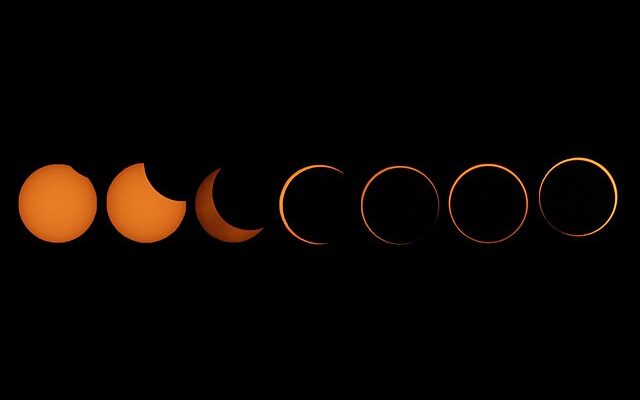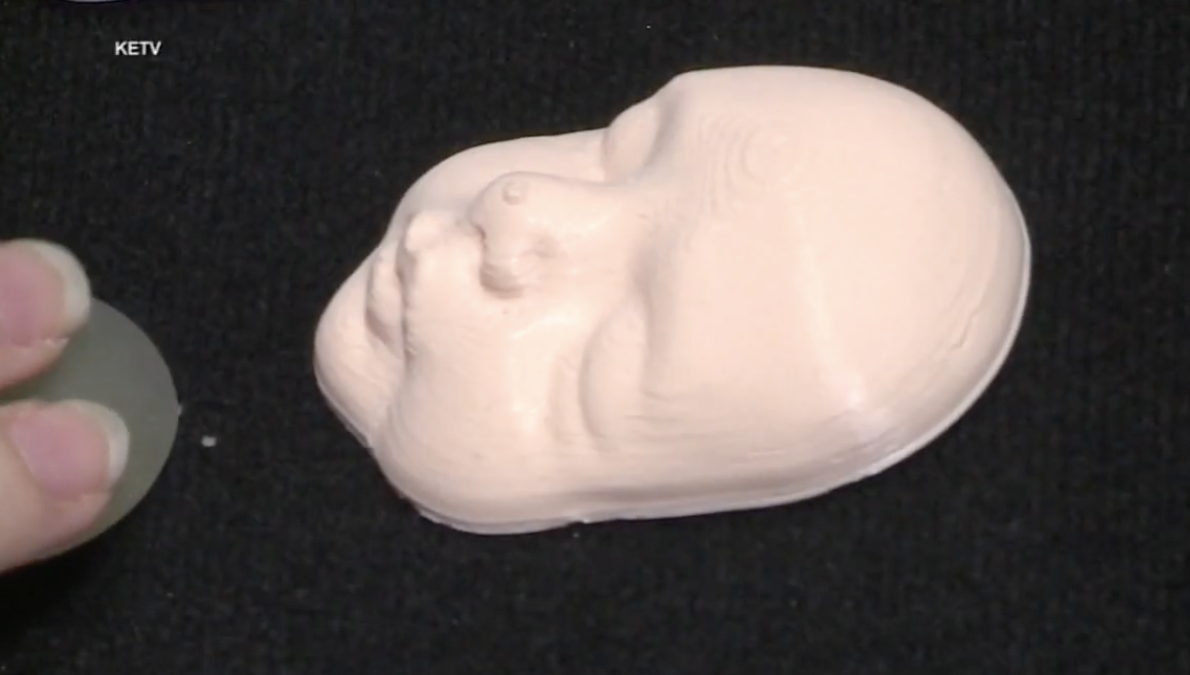
Because the moon’s orbit around our planet is an ellipse, sometimes it is further away and thus appears smaller. An eclipse at these times sees the moon only an obscure part of the solar disk, with the sun appearing as a glowing ring of fire. These events are called annular solar eclipses, and the last one seen over the U.S. occurred on Oct. 14, 2023.
Finally, a partial solar eclipse is an event that happens when the Earth, moon, and sun are not perfectly aligned, resulting in the lunar disk only covering part of our star, making the sun appear as if a bite has been taken out of it. Partial eclipses also happen at the beginning and ending stages of total and annular eclipses.
On April 8, 2024, the moon will be in its new moon phase, and it will look relatively large, meaning it is capable of covering 100% of the sun’s disk as viewed from the narrow path of totality. The fraction of the diameter of the sun covered by the moon is known as the magnitude of a solar eclipse. On April 8, 2024, this value will be 1.0566, according to EclipseWise.com, slightly more than total coverage.
Here are some tips that will help you get the most out of your eclipse viewing.
- Research the Path of Totality: The path of totality refers to the geographic area where the total eclipse will be visible. To make the most of your viewing experience, find out if you’re within this path and plan your location accordingly. Cities like Dallas, Indianapolis, Cleveland, and Buffalo will experience totality, among others.
- Check the Weather Forecast: A clear sky is essential for eclipse viewing. Keep an eye on the weather forecast leading up to the event, and be prepared to relocate if necessary to a location with clearer skies.
- Protect Your Eyes: Watching a solar eclipse without proper eye protection can cause permanent eye damage. Invest in a pair of eclipse glasses or a solar viewer that meets the ISO 12312-2 international safety standard. Regular sunglasses are not sufficient for protecting your eyes during an eclipse.
- Practice Safe Viewing Techniques: Even with proper eye protection, it’s crucial to use safe viewing techniques. Only remove your eclipse glasses or viewer during the brief period of totality when the sun is completely covered by the moon. Be vigilant about protecting your eyes at all other times.
- Consider Alternative Viewing Methods: If you’re unable to obtain eclipse glasses or viewers, there are alternative ways to safely observe the eclipse. You can create a pinhole projector using cardboard or paper to indirectly view the eclipse’s progression. Simply poke a small hole in one piece of material and let the sunlight pass through onto another surface.
- Prepare Your Equipment: If you’re planning to photograph the eclipse, ensure that you have the necessary equipment ready. Use a solar filter on your camera lens to protect it from the Sun’s intense light. Practice setting up your equipment in advance to avoid any last-minute hiccups.
- Arrive Early: Popular viewing locations may become crowded as the eclipse approaches. Arrive early to secure a good spot and avoid any potential traffic or parking issues. Bring along chairs, blankets, and snacks to make yourself comfortable during the wait.
- Immerse Yourself in the Experience: A total solar eclipse is a truly magical event, so take the time to fully immerse yourself in the experience. Observe the changes in the environment as the sky darkens, and listen for any sounds that accompany the eclipse, such as birdsong or the reactions of fellow viewers.









